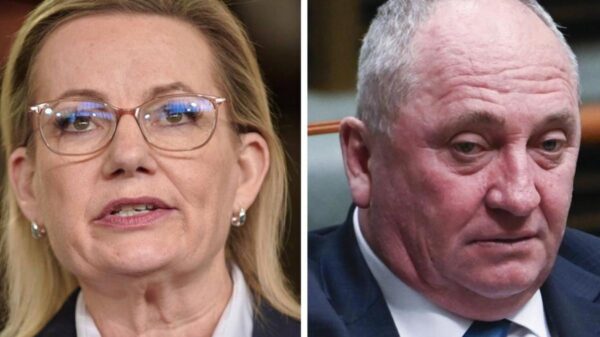UPDATE: Australia has officially lifted biosecurity restrictions on US beef imports, a significant move confirmed by Minister for Agriculture, Fisheries and Forestry, Julie Collins, just hours ago. This decision follows intense scrutiny and pressure from former President Donald Trump, who previously demanded action on Australian imports amidst threats of tariffs up to 200 percent on pharmaceuticals and existing tariffs on steel and aluminum.
In a statement released earlier today, Collins emphasized, “The Albanese Labor government will never compromise on biosecurity.” She noted that the US Beef Imports Review has completed a rigorous, science-based assessment over the past decade, allowing for the safe importation of US beef, which is crucial for Australia’s trade relations.
This development comes amidst escalating tensions between Australia and China. Former Prime Minister Scott Morrison recently warned the US Congress that Australians risk “going to sleep” regarding the security threat posed by China. During a congressional hearing, he revealed polling data from the Lowy Institute indicating that as of 2025, 50 percent of Australians view China as “more of an economic partner,” while 47 percent consider it “more of a security threat.” This marks a notable shift from previous years, where 63 percent identified China as a security threat in 2021-22.
Morrison urged Western democracies to remain vigilant against the Chinese Communist Party’s objectives, stating, “That is an objective of the CCP – that Western democracies will go to sleep on the threat.” His remarks reflect a growing concern among international observers about the shifting perceptions of China’s influence in the region.
Adding to the urgency, the International Court of Justice has ruled that countries affected by climate change can legally pursue neighboring nations for reparations if they fail to meet emission reduction obligations. This landmark advisory ruling could lead to significant compensation claims, potentially impacting Australia’s international standing.
In domestic news, the Albanese government aims to advance its legislative agenda after introducing two key draft laws this week. Labor is optimistic about gaining support from the Coalition for its student debt reduction bill. The political atmosphere remains tense, with government and opposition exchanging heated debates over housing affordability and climate policy during the first question time of the new parliament.
As the Australian share market is expected to rise, following positive momentum from Wall Street due to a US-Japan trade deal, the overall economic landscape remains in flux. Analysts will be closely monitoring developments as these significant policy shifts unfold.
Stay tuned for more updates as this story develops.





























































